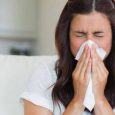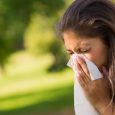What is an Allergy
The word allergy is not foreign to the vocabulary of many people. In fact, a large portion of the human population is intimately familiar with the annoying symptoms of allergies. Watery eyes and running noses are common symptoms of allergic reactions to even mild exposure to pollen in the spring months, but what exactly is an allergy?
Allergies are simply a hypersensitive immune response to something in the environment that would normally be considered harmless. Substances that cause these immune responses are often referred to as allergens. Allergens can include things like pollen, dust, foods or even pets.
Allergic responses to these generally harmless substances can be quite severe and might include internal and external symptoms. Exposure to some types of allergens will cause skin irritation like itching or hives. Certain allergens, especially pollens, can cause the most common form of an allergic reaction that is referred to as “hay fever.” Hay fever is found most commonly during the months of the year when plants are blooming.
During an allergic reaction, the immune system is hard at work inside the human body. When exposed to an allergen, the body produces large amounts of a substance called histamines. Histamines are the body’s standard response to anything that the immune system considers an “invader” in the body. Histamines are released when the immune system encounters a virus like the flu. The release of histamines during an allergic reaction is much stronger than during a normal immune response. The number of histamines that circulate through the body during an allergic reaction can be so large that symptoms like dizziness, nausea and vomiting can occur.
Hypersensitivity to allergens like pollen and certain foods can be acquired during one’s lifetime or might be genetic. In most cases, it is believed that allergies or the propensity for allergic reactions to certain substances will be determined by heredity, race, gender and even age. In a family with twin children it is very common for the twins to have the same allergic reactions to the same substances. In fact, studies have determined that twins share similar allergic responses in almost 70% of the cases studied. Environmental factors can also influence allergic reactions. Prolonged exposure to air pollution or exposure to immune compromising diseases during childhood can also cause allergies later in life.
Allergic reactions can vary in degree from mild to extremely severe. Allergies associated with pollen like hay fever are considered to be the mildest. Allergic reactions to certain food items can be so severe that death can occur. In most people allergies are considered more annoying than dangerous and are usually controlled by ingesting a medication called an antihistamine. These medications can be found in drug stores and grocery stores.
Recommended Products For Allergy










